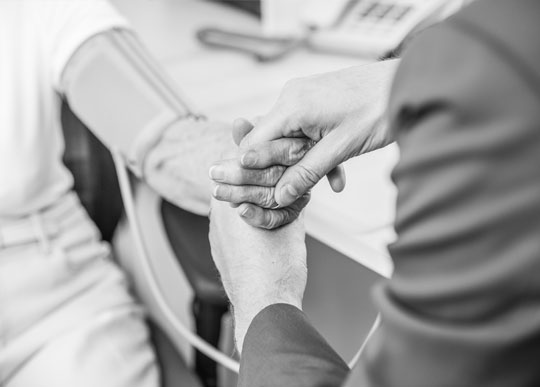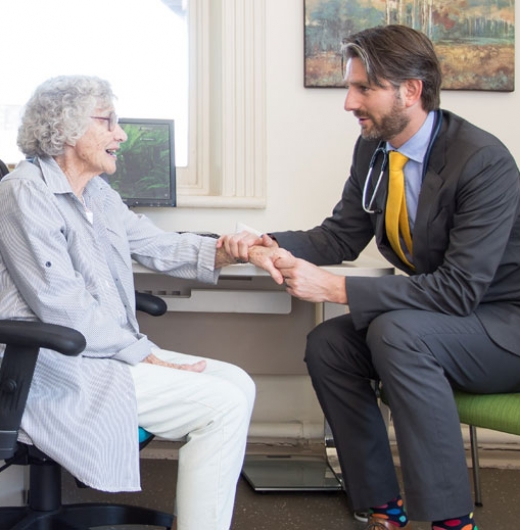Depression
How you feel at any one time is dependent on a whole host of factors including your brain’s ‘chemistry’ and external factors such as your life situation. As we age, changes occur in the brain that can make us more prone to feeling down, or less able to respond positively to challenging times. This can lead to feelings of being down, sadness and social withdrawal which starts a vicious cycle worsening the initial feelings leading to a depression. Depression can also be associated with several conditions that affect us as we age and is relatively common. Particularly, depression is found more frequently in people living with dementia and people living with Parkinson’s disease.
Depression can lead to a constellation of symptoms including a constant feeling of being ‘down’, changes in sleeping (poor sleep or excess sleeping), appetite changes, weight loss, loss of interest, poor motivation, becoming sedentary or stationary and many others.


There are several causes of why someone may be more depressed. Major life events such as bereavements, especially in close family members or friends can trigger a bereavement depression that may improve in time, though sometimes may need support if it affects someone seriously (like not eating or sleeping). Loneliness often can trigger or worsen a depression. Sadly, as we grow older, we lose many of the friends and family we have spent our life with to the point where there may be few or no close people left in your life. Exploring how we can support someone in a sadly not-uncommon situation like this requires sensitivity and empathy to understand what the person wants for their future, and how we can help provide what they wish. Often small social activities are enough to enable the person to re-engage with like-minded people and our role is to explore what are the things we can do and how we can help facilitate them.
Working out the causes of why someone may be feeling down is especially important as it helps identify the correct road to cure; some of the best treatments for depression may not involve drugs at all. By speaking with you and your family, we can work out the right solutions for you and closely follow you up as you improve.
